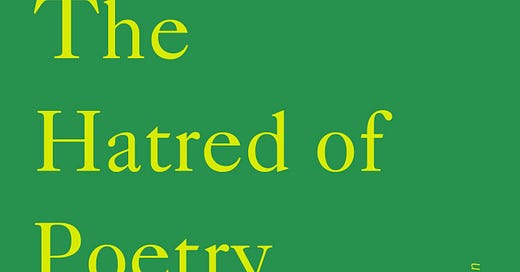What is poetry?
Emily Dickinson answered, in a letter:
If I read a book and it makes my whole body so cold no fire can warm me, I know that is poetry. If I feel physically as if the top of my head were taken off, I know that is poetry. These are the only ways I know it. Is there any other way?
I sure hope so! Dickinson’s tests are difficult to operationalize. They are dangerous. And they do little to illuminate the murky oppositions that spark the quest for a definition: poetry vs. prose, poetry vs. philosophy.
Robert Frost is, if anything, less helpful:
Poetry is when an emotion has found its thought and the thought has found words.
This could apply to fiction or essay as much as verse.
We are better served by a philosopher not well-known for poetic appreciation. “Pleasure for pleasure,” he once proclaimed, “push-pin is as good as poetry.” (Push-pin was a trivial parlour game.) As reported by Michael St.John Packe, in The Life of John Stuart Mill (1954), Jeremy Bentham pitched the followin…
Keep reading with a 7-day free trial
Subscribe to Under the Net to keep reading this post and get 7 days of free access to the full post archives.



